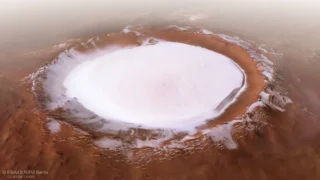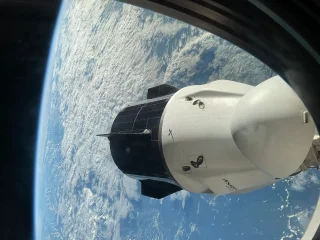Daniel Keaney
Astrobiology Researcher/Part-time lecture at MTU

MTU is heavily involved with different space-based initiatives, with ties to Blackrock Observatory and the SEE’s satellite-based work/research, and my of course my own astrobiological-based research. Supervised by Dr Brigid Lucey and Dr Karen Finn, my research focuses on designing bacteria for bioremediation on Mars. This could help us to detox the soils on Mars with the hope of someday growing extraterrestrial crops which are safe for colonists to eat from the effects of sodium perchlorate. Some of my work involved examining the influence of Mars-like environmental factors on the growth of our candidate strains, the best ways to promote biofilm to protect the bacteria both separately and in co-cultures, new ways of quantifying perchlorate bioremediation using Raman Spectroscopy, the invention of a novel bio-housing unit to be used both on Earth and beyond, and the genetic modification of our candidate strain.
A typical day for Daniel:
My days are highly variable depending on what stage of my research I am at. When breaking ground on a new chapter I will be researching the literature and physically sketching and troubleshooting new designs to bring to my supervisors, while other days I will be engrossed in my lab work, analysing data, forming conclusions and attending meetings to discuss the data. All the while, I balance this work with demonstrating undergraduate labs part-time and occasionally lecturing students.
Top tip from Daniel for those interested in a similar career:
People think you need to be super-humanly smart to do this job. Granted, intelligence tends to come with the area, but it is perseverance and dedication that stands to a candidate more. A curious mindset and the ability to think abstractly is key, along with a strong attention to detail and forward thinking/organisation. Volunteering in a research lab or conducting a lab-based final year research project of your own design and conceptualisation is a good way to see if research is right for you (that is what I did).
